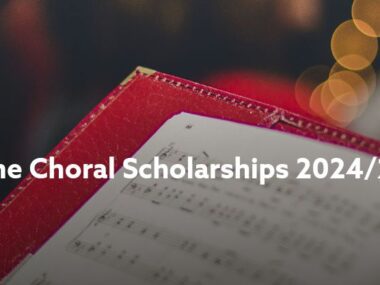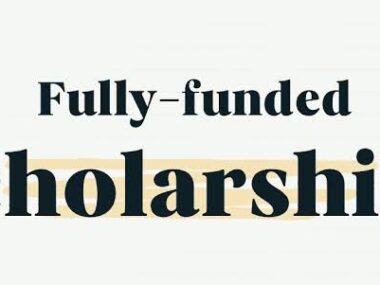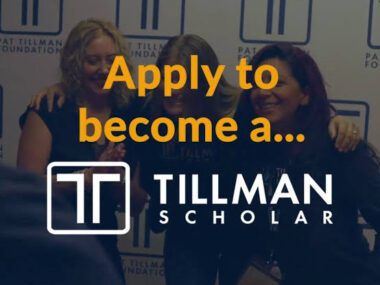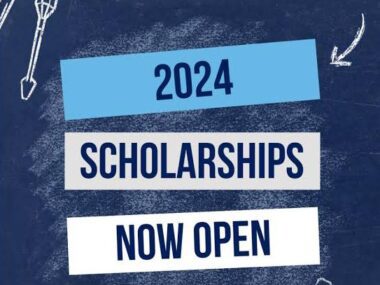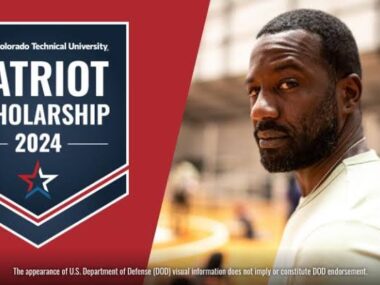The Jack Kent Cooke Young Scholar Program offers exceptional financial support to help some of the nation’s most promising high school students from low-income backgrounds complete college and realize their full potential.
Program Overview
Named after legendary philanthropist Jack Kent Cooke, the Young Scholar Program was established in 2001 to identify students in 9th grade with significant financial need and exceptional academic potential. Its mission is to help these high-achieving yet underprivileged students overcome financial barriers that may prevent them from accessing enriched school opportunities and attending selective colleges.
Each year, around 100 students are awarded Cooke Scholarships worth up to $40,000 per year to attend the college or university of their choice. This funding covers up to four consecutive years of undergraduate study and is renewable, pending good academic standing. In total, scholarships can provide more than $160,000 in financial support for a student’s entire college career.
Beyond the generous scholarship awards, Cooke Scholars also gain access to various educational, professional, and social enrichment programs. These include academic advising, career guidance, internship placement assistance, mentorship connections, and opportunities to network with fellow scholars and Cooke Foundation staff. The goal is to give scholars every tool possible for successful college completion and career launch.
Eligibility Requirements
To qualify for the Young Scholar Program, applicants must meet several baseline eligibility standards:
Financial Need
Applicants must demonstrate significant financial need, with a household income generally below $60,000 and assets below $50,000. Financial aid eligibility and Expected Family Contribution (EFC) on the FAFSA will be taken into consideration.
Academic Achievement
Applicants should be high academic achievers, typically maintaining a GPA of at least 3.5 out of 4.0 scale or being in the top 5% of their class. They should have a history of taking challenging courses and performing well.
Grade Level
Applicants must be high school sophomores or juniors (9th/10th grade) at the time of application. Selection is for the school year following application submission.
Residency
Applicants must be United States citizens, permanent residents, or DACA recipients residing in the U.S. five years before applying.
Beyond these core criteria, the selection also considers other merits like leadership skills, extracurricular activities, recommendations, and personal essays demonstrating promise and potential. It’s a highly selective process aimed at identifying students who will gain the most from Cooke support.
The Application Process
Below are the steps involved in applying for the Jack Kent Cooke Young Scholar Program:
Initial Application Form
Applicants complete an online application form providing basic information like demographics, academics, activities, and honors received. This form is available each fall on the Cooke Foundation website.
Supporting Documents
Required supporting documents include transcripts, recommendations, and personal statements. Recommenders like teachers or counselors submit confidential letters of support.
Semifinalist Interview
Semifinalists are selected for a video interview conducted by a Cooke Foundation representative. This allows for an in-depth conversation about goals, challenges, character, and fit for the program.
Finalist Weekend Events
Approximately 100 finalists gather for an all-expenses-paid weekend with leaders in academia, business, and public service. It includes workshops, panels, mentoring sessions, and individual assessments.
Scholarship Notification
By early spring, regional committees review all materials to select the 100 Young Scholars nationwide who will each receive up to $40,000 annually for college.
The application process is thorough yet fully supported by Cooke staff. It aims to holistically understand candidates through multiple evaluation points from leaders in the education field.
Scholar Expectations
Once selected as a Young Scholar, recipients adhere to several requirements and recommendations to remain in good standing with the program:
Academic Performance
Scholars must maintain at least a 3.0 cumulative GPA on a 4.0 scale each academic year. They commit to continued study of a rigorous course load while in college.
Status Updates
Scholars provide annual updates on their academic progress, activities, internships, research, community service, career plans, and other milestones. This promotes accountability.
Conferences and Events
When possible, scholars are expected to participate in several multi-day Cooke Foundation conferences held each year. These foster networking, leadership development, and exposure to enrichment opportunities.
Career Counseling
The Cooke Foundation connects scholars to career exploration resources and one-on-one counseling starting in the first year of college. Early career planning is strongly encouraged.
Post-Graduation Survey
For 5-10 years after college completion, scholars are surveyed about their employment, further education plans, and other outcomes to help measure program success and impact.
While maintaining high academic standards, the Cooke Foundation aims to support scholars holistically through college and emerging adulthood. Commitment to personal and professional growth is expected in exchange for the generous financial backing provided.
Application Tips and Strategies
Given the highly competitive nature of being selected as a Cooke Scholar, here are some useful tips for strengthening your application:
Start Early
Develop extracurricular involvement, leadership roles, community service, and awards over multiple years rather than waiting until sophomore year to begin building your profile. Stand out through sustained commitment to activities you’re passionate about.
Ask for Recommendations
Approach recommenders months in advance so they have ample time to thoughtfully assess your character and strengths. Choose individuals like teachers who know you well beyond grades. Maintain regular contact to remind them of deadlines.
Emphasize Achievements
Be selective yet thorough in highlighting academic honors, projects, classes, contests, performances, publications, jobs, or other significant achievements on your application and resume. Quantify your impact or responsibilities when possible.
Polish Your Essays
Thoroughly proofread and have others review your personal statements for meaningful content, compelling storytelling, and clean writing. Tailor responses specifically to each prompt rather than general statements. Be authentic yet demonstrate fit for the program.
Prepare for the Interview
Anticipate common questions about your background, goals, challenges overcome, leadership style, or interests. Have thoughtful examples prepared from your experiences. Maintain confident yet personable eye contact and speaking skills during live or virtual conversations.
Follow Instructions Closely
Pay close attention to character limits, required or optional materials, formatting guidelines, and deadlines outlined on the application website. Meeting all specifications shows attention to detail which evaluators appreciate. Reach out promptly with any questions.
Stay Positive and Confident
Believe in yourself as someone who deserves this opportunity based on your accomplishments and potential for growth. Positive body language and tone during the application process can leave a memorable impression on selectors.
Thorough preparation makes the most of any application to highly selective scholarships. With diligent effort, your qualifications and fit for the program will clearly shine through each step of evaluation.
Benefits of Being a Cooke Scholar
For those fortunate enough to receive a Jack Kent Cooke Foundation scholarship, the benefits span far beyond just financial support for a college degree:
Scholarship Funding
As mentioned, scholarships provide up to $40,000 annually for four years of undergraduate study at any accredited university. This removes a major financial burden on scholars and families.
Academic Advising
Cooke advisors help scholars select universities, choose majors, plan course schedules, apply for additional scholarships and grants, and make the most of college resources and opportunities.
Internship Placement
The Foundation establishes professional internship connections that allow scholars to gain career exposure and work experience in areas of interest like business, government, healthcare, or nonprofit work.
Mentorship Network
Cooke Scholars join a community of engaged mentors, including Cooke Foundation leadership, benefactors, university alumni, and even employers. Mentors offer guidance on personal and academic goals.
Career Exploration
Workshops, online tools, and one-on-one career counseling help scholars investigate potential fields and pathways, build resumes and interview skills, and plan strategically for post-graduation options like jobs or graduate study.
Leadership Development
By participating in multi-day Cooke Scholar conferences, scholars build public speaking, project management, critical thinking, and teamwork skills through discussion panels, small group projects, and networking events.
Enrichment Opportunities
Awards and grant programs allow scholars to fund study abroad trips, research assistantships, international internships, graduate school application expenses, and other experiential learning not covered by the core scholarship.
In all, being selected gives students immense social and cultural capital that often results in life-changing outcomes for career and personal success long beyond the college years. It’s a transformative opportunity for motivated students facing socioeconomic barriers.
Frequently Asked Questions
FAQ Section 1: What are my chances of being selected?
The Cooke Foundation typically receives over 5,000 applications each year but can only select around 100 Young Scholars. Your odds of winning are, therefore, less than 2%. However, with a strong application showcasing your accomplishments, interview skills, and fit for the program, your chances are as good as anyone’s. Focus on what you can control rather than the odds. Many prior scholars had similar doubts but were selected – you have nothing to lose by applying.
FAQ Section 2: What can I do if I’m not selected after applying?
Don’t lose hope – see any feedback from reviewers as an opportunity for growth. You may still qualify for other scholarships, so research additional options and reapply to Cooke in the future with an even stronger profile. In the meantime, stay focused on your studies and keep building leadership roles. Many prior applicants who reapplied with improvements to their applications in subsequent years ended up winning. Selection is highly competitive, so one missed chance does not define your potential.
FAQ Section 3: What majors are best for Cooke Scholars?
The Cooke Foundation has no preference for undergraduate major selection – they want to support scholars in pursuing their passions. However, majors that often lead to meaningful careers like healthcare, education, engineering, business, public policy, or computer science tend to be most practical. Liberal arts degrees can also be great if combined with internships or experiences that demonstrate career readiness. The best approach is researching high-growth or high-need fields and selecting a major you truly find interesting rather than just what might look best to reviewers.
FAQ Section 4: What are the obligations after college?
The Cooke Foundation does not require direct career commitments after graduation. Their goal is empowering scholars to become accomplished, civically engaged professionals through any path of their choosing. They do ask scholars to complete periodic surveys for 5-10 years on education, employment, community involvement, and other outcomes to help measure the program’s long-term impact. Many scholars maintain connections in the alumni network as well. Beyond this, scholars are free to pursue their ambitions without strings attached to their generous college funding.
FAQ Section 5: Can an international student apply?
To be eligible, applicants must be United States citizens, lawful permanent residents (green card holders), or meet eligibility requirements under the Deferred Action for Childhood Arrivals (DACA) policy. Those with student (F-1), work (H-1B), or other temporary visas are unfortunately not able to apply at this time since the Cooke Foundation aims to support individuals pursuing long-term opportunities within the U.S. However, permanent residents and DACA recipients who otherwise meet eligibility criteria are wholeheartedly encouraged to apply.


